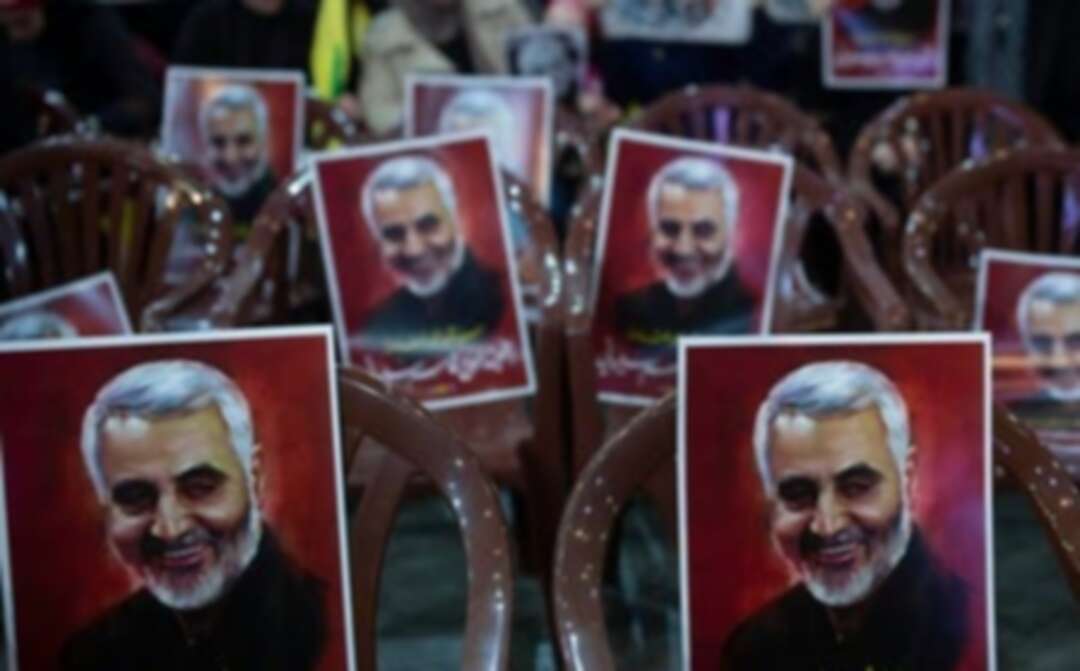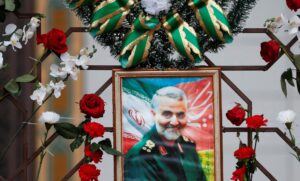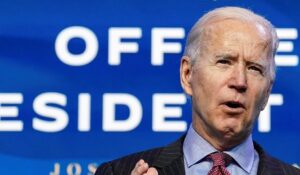-
Hezbollah erects statue of Soleimani while Lebanon is dismantled

Travelers to Lebanon are not shocked by the soaring number of COVID-19 cases. Nor, will the plastered images of Iranian commander Qassem Soleimani lining the airport highway into Beirut cause surprise. The ride into the capital gives an ominous impression of instead, arriving in Tehran, and the feeling that the people belong to the Iranian state.
Recent statements from Amir Ali Hajizadeh, commander of the Islamic Revolutionary Guards’ Corp (IRGC) Aerospace Force support this. He affirmed that, “all the missile capabilities of Gaza and Lebanon have been supported by Iran, and they are the front line for confrontation.”Iran, through its Lebanese proxy Hezbollah, has been slowly chiseling away at what remains of Lebanon’s sovereignty. Attacking Iran will bring repercussions, for Lebanon and the international community, it fears Israel and the US, and its narrative says Hezbollah would retaliate almost immediately, making Lebanon a first-strike deterrence missile base for Iran.
 Flowers lie around a portrait of Iranian Major-General Qassem Soleimani, who was killed in an airstrike near Baghdad, at the Iranian embassy's fence in Minsk, Belarus January 10, 2020. (File photo: Reuters)
Flowers lie around a portrait of Iranian Major-General Qassem Soleimani, who was killed in an airstrike near Baghdad, at the Iranian embassy's fence in Minsk, Belarus January 10, 2020. (File photo: Reuters)Running its own black economy, and using the Lebanon’s dwindling resources, Hezbollah’s involvement in the fighting in Syria, Iraq, Yemen and beyond has placed tremendous pressure on Lebanon, exacerbated by Arab Gulf neighbors no longer willing to bankroll its failing economy.
Iran’s sabre rattling are preemptive moves designed to avoid military escalation. Preventing the outgoing Trump administration from taking any rash military actions against them is their mission, and this includes their many proxies in the region.
It is no coincidence that Iran’s war of words marks the anniversary of the killing of its top enforcer Qassem Soleimani, and his top Iraqi aid Abu Mehdi al-Mohandas which, despite repeated threats, Iran has yet to avenge. Iran’s fears are clearly visible from Hezbollah secretary-general Hassan Nasrallah’s recent speech underscoring that, “The resistance front will always be respecting and glorifying its martyrs. Iran will take military revenge by itself. It has strength and ability as well as power to defend and does not need any proxies. The friends of Iran will take their own decisions if they want to respond to this crime.”
However, the friends of Iran, be it in Lebanon or Iraq, will find themselves in a pickle when positioned as forward defense bases. This will prove costly with President-elect Joe Biden taking office in a few weeks. Despite its formidable militia setup, Hezbollah does not the capacity to engage Israel in an open war.
 US President-elect Joe Biden speaks as he announces members of economics and jobs team at his transition headquarters in Wilmington, Delaware. (File photo: Reuters)
US President-elect Joe Biden speaks as he announces members of economics and jobs team at his transition headquarters in Wilmington, Delaware. (File photo: Reuters)As the Biden administration will re-engage with Iran on the nuclear deal, it will certainly not turn a blind eye on the destructive role the country’s militia across the region has caused. Nasrallah has repeatedly tried to brand Lebanon as an anti-western nation, bent on destroying the US.
Given that Iran and its proxies cannot destroy, nor threaten the US they have turned instead to bullying nations they occupy.
In Lebanon and Iraq’s case this includes polluting and desecrating its public spaces with hideous, badly crafted murals, and statues of Soleimani and their militiamen who perished in pursuit of Iran’s expansionist scheme. Denounced and ridiculed by the public for their lack of aesthetic appeal, underneath the proclaimed art reveals Iran’s attempt to compensate for its lack of inaction.
source: Makram Rabah
Image source: AP
Levant
You May Also Like
Popular Posts
Caricature
BENEFIT Sponsors BuildHer...
- April 23, 2025
BENEFIT, the Kingdom’s innovator and leading company in Fintech and electronic financial transactions service, has sponsored the BuildHer CityHack 2025 Hackathon, a two-day event spearheaded by the College of Engineering and Technology at the Royal University for Women (RUW).
Aimed at secondary school students, the event brought together a distinguished group of academic professionals and technology experts to mentor and inspire young participants.
More than 100 high school students from across the Kingdom of Bahrain took part in the hackathon, which featured an intensive programme of training workshops and hands-on sessions. These activities were tailored to enhance participants’ critical thinking, collaborative problem-solving, and team-building capabilities, while also encouraging the development of practical and sustainable solutions to contemporary challenges using modern technological tools.
BENEFIT’s Chief Executive Mr. Abdulwahed AlJanahi, commented: “Our support for this educational hackathon reflects our long-term strategic vision to nurture the talents of emerging national youth and empower the next generation of accomplished female leaders in technology. By fostering creativity and innovation, we aim to contribute meaningfully to Bahrain’s comprehensive development goals and align with the aspirations outlined in the Kingdom’s Vision 2030—an ambition in which BENEFIT plays a central role.”
Professor Riyadh Yousif Hamzah, President of the Royal University for Women, commented: “This initiative reflects our commitment to advancing women in STEM fields. We're cultivating a generation of creative, solution-driven female leaders who will drive national development. Our partnership with BENEFIT exemplifies the powerful synergy between academia and private sector in supporting educational innovation.”
Hanan Abdulla Hasan, Senior Manager, PR & Communication at BENEFIT, said: “We are honoured to collaborate with RUW in supporting this remarkable technology-focused event. It highlights our commitment to social responsibility, and our ongoing efforts to enhance the digital and innovation capabilities of young Bahraini women and foster their ability to harness technological tools in the service of a smarter, more sustainable future.”
For his part, Dr. Humam ElAgha, Acting Dean of the College of Engineering and Technology at the University, said: “BuildHer CityHack 2025 embodies our hands-on approach to education. By tackling real-world problems through creative thinking and sustainable solutions, we're preparing women to thrive in the knowledge economy – a cornerstone of the University's vision.”
opinion
Report
ads
Newsletter
Subscribe to our mailing list to get the new updates!






















